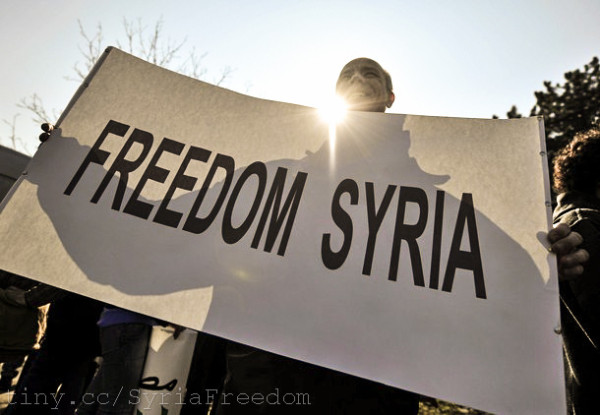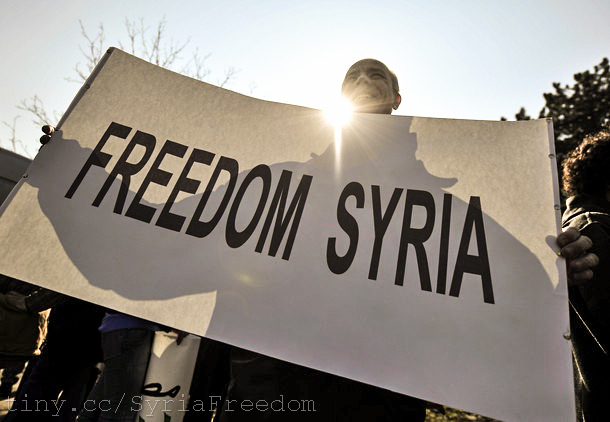
By Tariq Ali
Ever since the beginning of the Arab Spring there has been much talk of revolutions. Not from me. I’ve argued against the position that mass uprisings on their own constitute a revolution, i.e., a transfer of power from one social class (or even a layer) to another that leads to fundamental change. The actual size of the crowd is not a determinant—members of a crowd become a revolution only when they have, in their majority, a clear set of social and political aims. If they do not, they will always be outflanked by those who do, or by the state that will recapture lost ground very rapidly.
The idea that the Saudis, Qatar, and Turkey backed by NATO are going to create a revolutionary democracy or even a democratic set-up is challenged by what is happening elsewhere in the Arab world.
Egypt is the clearest example in recent years. No organs of autonomous power ever emerged. The Muslim Brotherhood, a conservative social force, one that belatedly joined the struggle to overthrow Mubarak, emerged as the strongest political player in the conflict and, as such, won the elections that followed. The Brotherhood’s factionalism, stupidity, and a desire to reassure both Washington and the local security apparatuses that it would be business as usual led it to make several strategic and tactical errors from its own point of view. New mass mobilizations erupted, even larger than those that had led to the toppling of Mubarak. Once again they were devoid of politics, seeing the army as their savior and, in many cases, applauding the military’s brutality against the Muslim Brothers. The result was obvious. The ancient régime is back in charge with mass support. If the original was not a revolution, the latter is hardly a counter-revolution. Simply the military reasserting its role in politics. It was they who decided to dump Mubarak and Morsi. Who will dump them? Another mass mobilization? I doubt it very much. Social movements incapable of developing an independent politics are fated to disappear.
In Libya, the old state was destroyed by NATO after a six-month bombing spree. Nearly two years later, armed tribal gangs of one sort or another still roam the country, demanding their share of the loot. Hardly a revolution according to any criteria.
What of Syria? Here, too, the mass uprising was genuine and reflected a desire for political change. Had Assad agreed to negotiations during the first six months and even later, there might have been a constitutional settlement. Instead, he embarked on a path of repression and the tragically familiar Sunni-Shia battle-lines were drawn (this divide a real triumph for the United States following the occupation of Iraq). Turkey, Qatar and the Saudis poured in weaponry and volunteers to their side, and the Iranians and Russians backed the other with weaponry.
The notion that the Syrian National Coalition (SNC) is the carrier of a Syrian revolution is as risible as the idea that the Brotherhood was doing the same in Egypt. A brutal civil war with atrocities by both sides is currently being fought. Did the regime use gas or other chemical weapons? We do not know with certainty. The strikes envisaged by the United States are designed to prevent Assad’s military advances from defeating the opposition and re-taking the country. That is what is at stake in Syria.
Whatever else may or may not be happening in Syria, it is far removed from a revolution. Only the most blinkered sectarian fantasist could imagine this to be the case.
Outside the country, the Saudis are desperate for a Sunni takeover to further isolate Iran, strengthened by the semi-clerical Shia regime in Iraq created by the US occupation. Israel’s interests are hardly a secret. They want Hezbollah crushed.
Whatever else may or may not be happening in Syria, it is far removed from a revolution. Only the most blinkered sectarian fantasist could imagine this to be the case. The idea that the Saudis, Qatar, Turkey backed by NATO are going to create a revolutionary democracy or even a democratic set-up is challenged by what is happening elsewhere in the Arab world: the democrat Hollande defends and justifies the Moroccan autocracy; the Saudis prevent Yemen from moving forward and occupy Bahrain; Erdogan has been busy with repression at home; Israel is not satisfied with a PLO on its knees and is pushing for Hamas to do the same (Morsi might have helped in that direction) so it can have another go at Hezbollah.
Most Syrian refugees in Lebanon and Jordan are only too well aware that US strikes will not make their country better. Many of the courageous citizens of Syria who started the uprising are in refugee camps. Those at home fear both sides, and who can blame them? Meanwhile, back at home, Obama is promising Republicans that he will facilitate regime change.
Tariq Ali has been a leading figure of the international left since the 1960s. He is a long-standing editor of the New Left Review and a political commentator published on every continent. His books include The Duel: Pakistan on the Flight Path of American Power, Pirates of the Caribbean: Axis of Hope, and The Obama Syndrome: Surrender at Home, War Abroad.

